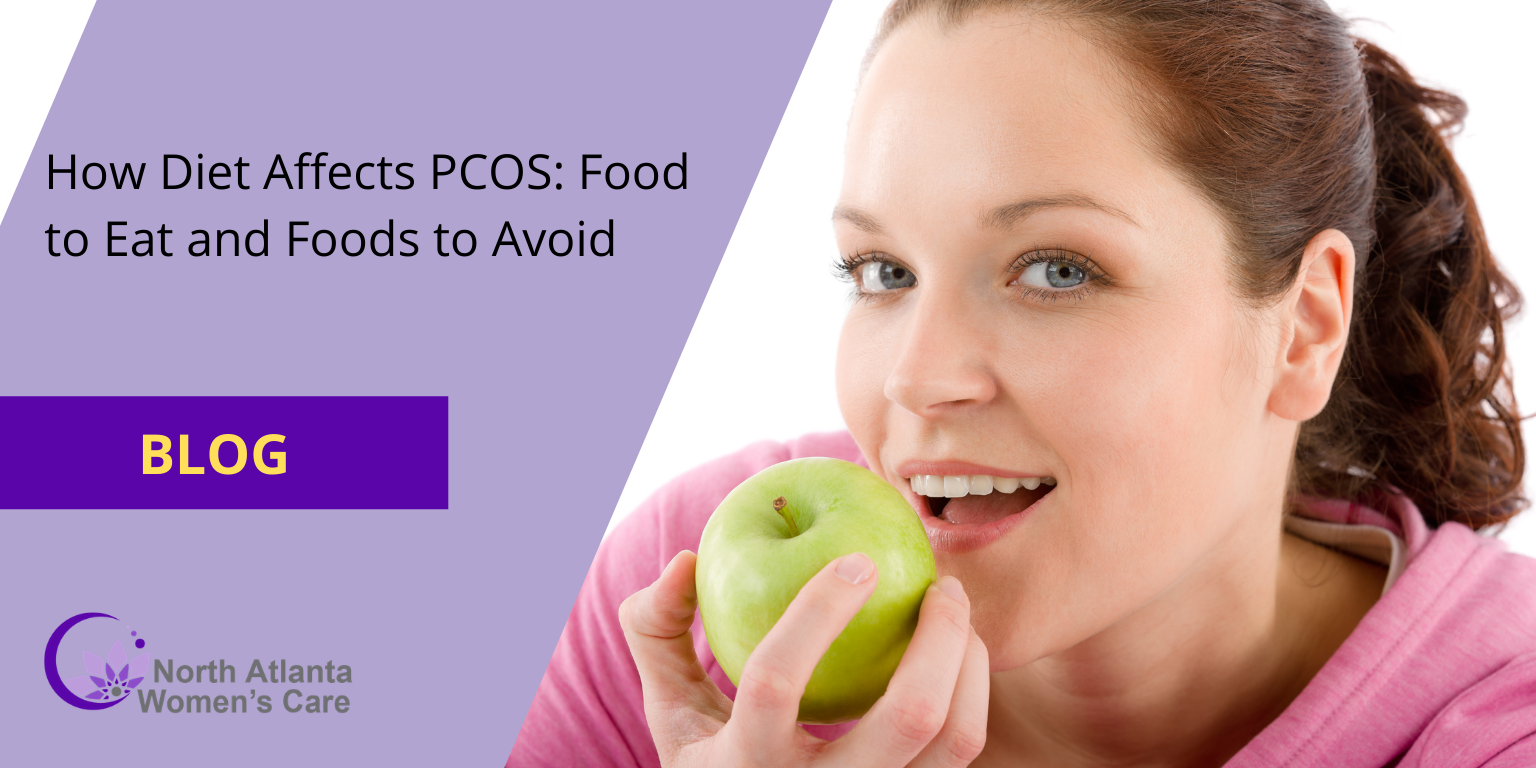How Diet Affects PCOS: Food to Eat and Foods to Avoid

Polycystic Ovary Syndrome (PCOS) is a common health condition in women that affects reproductive hormones. One of the common symptoms is an irregular period or lack of menstruation. PCOS can be managed with the help of your OBGYN and by implementing healthy habits. Diet and lifestyle choices can greatly affect PCOS and the symptoms experienced. Learn more about the foods you should eat and what you should avoid.
What is PCOS and how does it affect the body?
Polycystic Ovary Syndrome (PCOS) is a health condition in women that impacts hormone levels. This condition is relatively common, with 10% of women within the said age group experiencing it. PCOS affects female reproductive hormones leading to changes in the ovaries. This causes a group of symptoms, such as:
- Cysts in the ovaries
- Increased androgens levels (male hormones)
- Irregularities in the menstrual cycle
- Excess hair on face and body
- Acne
- Skin pigmentation
- Difficulty in getting pregnant
- Weight gain
- Hair thinning
Often, people who experience these symptoms don’t discuss them with a doctor. People suffering from PCOS may not seek medical help until they have difficulty in conceiving. PCOS can also lead to potential health issues such as depression, heart disease, diabetes, sleep apnea, anxiety, high cholesterol, high blood pressure, and endometrial cancer. While there is no known cure for PCOS, there are several ways to treat the symptoms.
How Your Diet Affects PCOS
Studies suggest that over 70% of women suffering from PCOS have insulin resistance, which means that the body’s cells stop responding to insulin in a normal manner, resulting in the insulin blood levels to shoot above normal.
Insulin resistance is common in obese or overweight women with PCOS who follow an unhealthy diet. Uncontrolled insulin resistance can ultimately lead to diabetes. Research shows that more than 50% of women with PCOS are diabetic or pre-diabetic before they turn 40. Therefore, it is very crucial to manage insulin levels, following a nutritious diet, and maintaining a healthy weight to ease the symptoms of PCOS.
Insulin resistance also means that your body requires higher insulin levels than normal to manage your blood sugar. High insulin levels also mean that your body is storing more fat, leading to weight gain. Patients with PCOS also experience a slower metabolism rate than normal, which can make it difficult to control food cravings.
Foods to Avoid if You Have PCOS
Women suffering from PCOS should avoid the following foods:
- Sugary drinks
- Fried foods
- Processed meats (ex. sausages, hamburgers, and hot dogs)
- Refined Carbohydrates (ex. white bread, pasta, and pastries)
- Processed food (ex. cakes, candy, sweetened yogurt, ice creams with excess sugar)
Foods to Add to Your Diet
There are certain foods that have proven to help manage the symptoms. Experts recommend a diet that has a low GI (glycemic index) and foods that have anti-inflammatory properties such as fatty fish, leafy greens, and berries. Some foods that are part of a healthy PCOS diet are
- Fatty fish (ex. tuna, sardines, mackerel, and salmon)
- Broccoli and cauliflower
- Legumes and lentils
- Leafy greens (ex. spinach, kale, and artichokes)
- Nuts& seeds
- Dark chocolate in moderate quantities
- Berries
- Spices (ex. turmeric and cinnamon)
Women living with PCOS in Suwanee, Georgia, and the greater North Atlanta area can now contact North Atlanta Women's Care if they need help managing their PCOS.
Comments are closed

